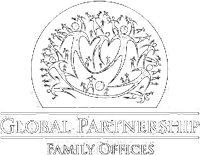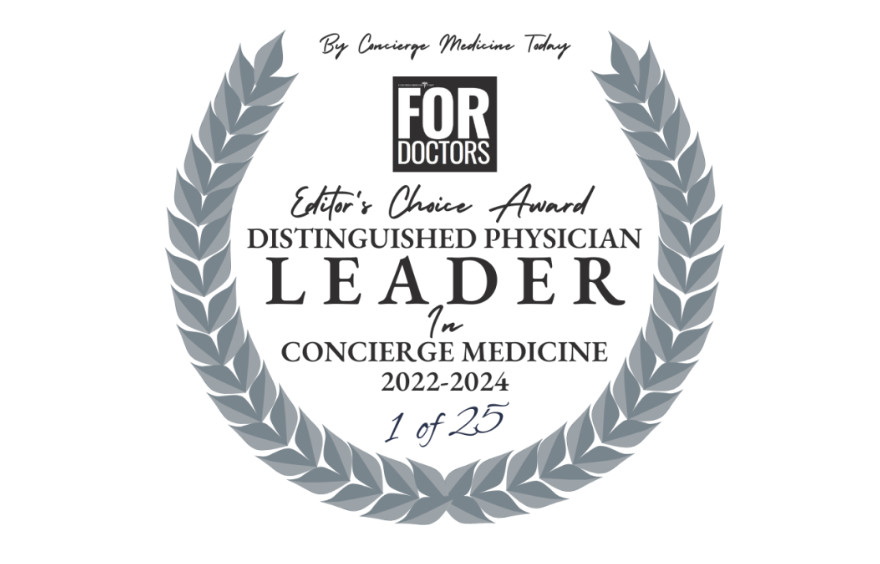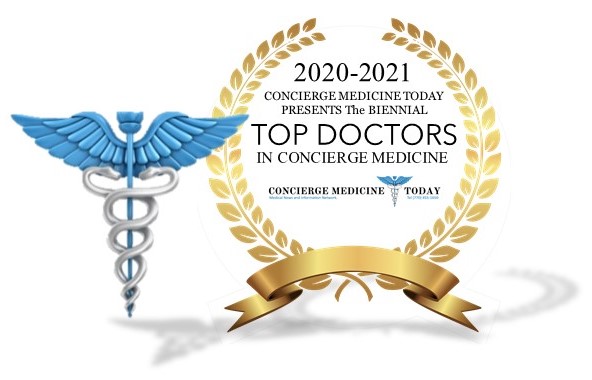When Does The ‘Trust Barrier’ Start?
The One Major Psychological Challenge of the Ultra-Wealthy

The First In Our Series Of Articles For Concierge Medicine Today
The team at HealthClic delve deep into this issue and discuss their experience and key take-aways for concierge doctors and patients. Covering the one main psychological challenge, and why concierge doctors are becoming the obvious choice for clients (home visits and on-call service aside).
Introduction
It is a well-known fact that the wealthier you become, the more detached you may become from the world around you. We criticise the rich about this regularly, for being “out of touch” with reality. Going from private planes to chauffeur-driven cars, and being escorted to and from each meeting means that the ultra-wealthy spend a staggering amount of time with those who work for them, rather than those close to them.
It is from exactly this, that the feeling of isolation can develop into longer-term issues such as loneliness (often known as Loneliness at the Top[1]), depression and anxiety.
Personas: On-Screen Vs. Reality
Due to these emotional vulnerabilities, those UHNW individuals and those in the spotlight often struggle to seek help when they need it most. Often they find it tough to acknowledge any weakness – including their very own health problems. A persona is created not only by those around the individual but also by their friends and family; which could be that of a strong businessman in the board room, a sophisticated singer or a powerful film mogul.
“When these individuals start to feel pressure, it is hard to admit to themselves that they may even need a basic health check-up – let alone a more detailed investigation into an ongoing problem”, says Dr Anuj Chaturvedi, Medical Director at London-based concierge medical service HealthClic. “An aura of feeling indestructible can be created because those around the individual cannot fathom why he/she may need to prioritise a medical appointment, over travelling to New York for the next concert, for example”.
HealthClic categorise their patients as ‘leaders’ – whether they are leading figures in their respective industries or in business. As Dr Chaturvedi describes, whether consciously or unconsciously, these leaders can be seen as infallible.
This is perhaps why, we often are hit with headlines covering the health tragedies of those in the limelight. These often cover a surprising health scare, substance abuse scandals – or in some tragic cases recently, the loneliness at the top drives individuals towards taking their own lives. Almost always, nobody expects it.
Physiological Implications
Dr Anuj Chaturvedi further explains that part of the reason no one expects it, is that it is very difficult for patients to realise it themselves. “The mind and body are interconnected. People are very unaware of harmful effects that stress and depression have on their bodies. For example, based on research (conducted by James Lynch, 2000[2]),when patients discuss stressful or hurtful life experiences, their own hearts exhibit symptoms that could lead to a heart attack. Patients when asked, did not realise the gravity of symptoms appearing on the blood pressure monitors. This is very serious, and simply prescribing more human contact will not do – these individuals require a long-term approach, which is preventive and the opportunity to build meaningful relationships. Their doctors have to know them well, and they have to trust their doctors, there is a ‘Trust Barrier’ which must be overcome.”
The ultra-wealthy often lose touch with many friends or companions they had on the road to building wealth; while they sacrifice countless parties, holidays or evening functions in their youth, focusing time towards their careers. Unfortunately, once they have more luxury of time or wealth to enjoy meaningful moments with friends or family, often issues such as jealousy or distance come in the way, leading to further isolation. Additionally, the team (or entourage) around the ultra-wealthy client are often – understandably – very protective, as those who meet the individual are commonly looking for their own gain and only really interested in the name, money or fame rather than getting to know the person inside. This further enhances the ‘Trust Barrier’ which often surrounds these individuals.
Concierge Doctors & The Ultra-Wealthy
So what are the ways that concierge doctors strive to build meaningful connections to understand their patients, and help their health to the best possible ability?
“With the new era of concierge medicine, it is no surprise that many leaders chose to have a concierge doctor looking after themselves and their families”, begins Priyanka Chaturvedi, CEO at HealthClic.
“Preventive healthcare is vital for world leaders. This is as vital in preventing mental health crises as it is in preventing physical health crises. Even if one minor thing goes wrong – headlines will be made and their businesses or film projects may collapse overnight. A lot of money and many jobs are clearly also at stake. However, there are various ways to achieve a meaningful relationship with not only the patient, but also with their team. Open and honest communication facilitates prevention, and allows the patient to comfortably engage with their health and difficult topics. A concierge medical practice can adopt these methods to achieve better outcomes for the patient’s health, therefore also improving long-term productivity for the overall outcomes of their company, team or industry”.
Through HealthClic’s experience in looking after various celebrities and leaders, Priyanka and her team of doctors find the following methods are very useful in building trusting relationships with the patient and their team, overcoming the ‘Trust Barrier’ as coined by Priyanka and Dr Anuj Chaturvedi.
- House Call Doctor Service. While private home visiting doctors is a huge convenience for these customers, it also adds a number of benefits which helps doctors to really get to know UHNW patients, thus building trust. Firstly, having a doctor at home means they are in a very intimate environment of your life. This in itself allows the doctor to demonstrate a level of understanding, empathy and dignity. The doctor can speak to you in your comfortable environment, and see who you are as a person in this private space, away from the outside world. This is very important for the patient to develop trust in his/her concierge doctor and helps to overcome the trust barrier, in addition to the obvious immediate, discreet and convenience benefits of 7-day on call doctors.
- Tele-diagnosis. This also includes creative ways of providing the client with an all-round service. The team working around a high profile or UHNW client really appreciate being flexible and recognising that every single tradition cannot be followed for patients leading such lifestyles. Concierge medicine enables this, with patients on membership being offered telephone consultations 365 days of the year. At HealthClic, doctors sometimes write letters to our patients too (particularly when they need to decide on the next step for their health), allowing clients to take the time necessary to evaluate their options.
- Care co-ordination across various specialists. This is reassuring and informative[3], along with providing the patient with second opinions and some clarity when dealing with complex cases. The client may often unexpectedly require seeing a specialist; but this must be done in a very careful manner as to maximise time efficiency and respect other commitments. As concierge doctors, one of the main duties is to facilitate care co-ordination and ensure the best is happening for your patient. Concierge doctors will be fully up to date and oversee treatment across various specialists, often organising or dictating the recommended treatment on the client’s terms on their behalf. This is helpful in overcoming the ‘trust barrier’, as the patient and his/her team know that the concierge doctor is not going the extra mile for extra financial again (as the membership fee will cover his services). Instead, they are receiving highly focused and exclusive attention from a professional team, with a doctor who truly and personally knows them, and wishes to achieve the best for their health.
When does the ‘Trust Barrier’ start?
While we have described in depth how concierge doctors tackle the unique psychological challenges they are faced when dealing with ultra-wealthy clients, we must not forget the children born into these families.
Children of affluence and in particular those who are raised in high profile families, face a completely unique set of challenges. While it is often presumed by society that these children are at very low risk of psychological challenges, recent studies and doctors’ experience find that this is not the case. Substance abuse, anxiety and depression are the top three, found to be caused mostly due to two things: pressures to achieve and maintain an image, and secondly isolation from parents[4].
Similarly, due to the above these children require trustworthy, long-term and healthy relationships in their lives. Many peers or even adults may only be interested in them for their name, but having a family concierge doctor who can manage this from an early stage, along with building a trustworthy patient-doctor relationship, can be very effective in preventing outcomes such as substance abuse or depression.
The ‘Trust Barrier’ starts very young, and it is vital for concierge doctors to use tools and working methods at their disposal to proactively overcome these psychological challenges to prevent future crises.
References
[1]Managing Executive Health: Personal and Corporate Strategies for Success– James Campbell Quick, Cary L. Cooper, Joanne H. Gavin, Jonathan D. Quick (2008)
[2]Lynch, J.J. 2000. A Cry Unheard: New insight into the Medical Consequences of Loneliness. Baltimore, MD: Bancroft
[3]Prince, A. Russ. 2015. Single-Family Office Embrace Concierge Healthcare. Forbes. https://www.forbes.com/sites/russalanprince/2015/02/16/single-family-offices-embrace-concierge-healthcare/#5f62e94e3d72
[4]Luthar, S. Suniya. 2003. The Culture of Affluence: Psychological Costs of Material Wealth. Child Development. https://www.ncbi.nlm.nih.gov/pmc/articles/PMC1950124/
Concierge Medicine Membership
Learn more about our concierge medicine membership for VIPs.











